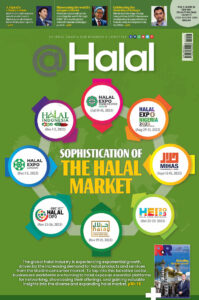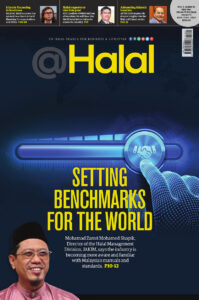The definition of Islamic Tourism may vary, but people can expect the great comfort and excellent hospitality the sector offers. Aside from catering to the needs of Muslim travellers, Islamic Tourism inspires balance, transformations and solutions in the tourism industry.
“The good thing about Islamic Tourism is it has no definitive definition. We can create our definition while creating an Islamic Tourism agenda. They can be for religious, historical, educational, cultural, or even for leisure purposes because Islam is not that narrow,” said Tan Sri Dr Mohd Daud Bakar, Chairman of Shariah Advisory Council, Bank Negara Malaysia and Securities Commission Malaysia.
“When you travel, you become a very global citizen. You become more open-minded. You become more tolerant and appreciative of other cultures. You become a citizen of the world, and that is the very essence of why we need to travel.
“Tourism cannot be defined strictly; we have to make it very much open and well-embracing to cover so many things on this planet because the Quran never makes it limited. It shouldn’t be limited in nature.”
Making tourism more accessible
Daud stated that Islamic Tourism should not only be accessible to the rich or the elites of society. Stakeholders must plan and think of ways to make Islamic Tourism more inclusive for all, including those who do not have much money to spend on travelling.
“From the social perspective, it should be inclusive. It should be made available, accessible and affordable to everyone. Not all Muslims can travel. That is why we need to diversify our focus to include non-Muslims travelling for Islamic Tourism purposes. If you can do that in the same manner as you’re doing for the halal food industry, we can have a bigger market share as far as Islamic Tourism is concerned.”
He noted that people must not underestimate the curiosity level of the non-Muslims, as they are as curious as Muslims to understand Islamic civilisation and cultural heritage.
“Many people are looking forward to being invited to be part of this industry. So, when it comes to balance, it should be made available for everyone. It should be made of an extensive narrative of Islamic Tourism because we do not want the word ‘Islamic’ to make people afraid.
“We must put the right frequency to the word, so it does not push people away. Instead, we can appeal to people to appreciate Islamic Tourism more. This is the job of everyone to discuss how to put the right narrative and dosage – it cannot be overdosed or underdosed. It is an exciting challenge that we need to take.”
Adopting the white ocean strategy
Daud said the transformation aspect was the most challenging thing to do as it required people to change and let go of their comfort zone. He highlighted that the most crucial element in creating transformation was to have the desire to change.
“Not many people have the desire to change. Our mindset is still localised. We are not willing to cooperate and share the cake. We’re not willing to have the white ocean strategy. We may be good at the blue ocean strategy. However, when it comes to Islamic Tourism across the globe, the blue ocean is not good enough.”
According to Daud, local industry players must learn and adopt the white ocean strategy and share the opportunities in Islamic Tourism with others. They must understand how the white ocean strategy helps the industry create more market share. To transform, destinations have to be mindful, resourceful and knowledgeable enough. More discussions should be made to connect the sector and benefit one another.
“Hopefully, Islamic Tourism can be an industry for everyone to appreciate, internalise and benefit from. Islamic tourism must have that particular transformative mindset to have repeated visitors. To do that, we have to rejuvenate our programmes. They cannot be the same thing for the past years. We must add a new flavour, culture and offers for the visitors and travellers.”
Utilising technology to facilitate travellers
Touching on solutions offered by Islamic Tourism, Daud elaborated on technology usage in the tourism industry.
“The digital application is essential. Nowadays, people trust apps more than they trust people. This is something that we need to invest more,” he highlighted.
Innovative application is the way forward, said Daud. A smart system that can tell travellers’ behaviours and preferences will help destinations provide more personalised offerings. Additionally, he noted that the tourism ecosystem had experienced changes. For example, many destinations now decided to go cashless. Therefore, stakeholders must look into ways to facilitate these new elements in the ecosystem.
“Islamic Tourism is the future of the world. We should cater for not only Muslim travellers but also non-Muslim travellers because many of the world’s population is deprived of the good things about Islam, Islamic culture, destinations, etc. This is the time for us to open up our doors.”








